The other day, a good friend of mine called me all excited about her newly published book, titled “A Closer Look.” Within a few hours, Kathleen D. Dowling was at the University of the Virgin Islands St. Croix campus so that I could get a copy of her book. You should have seen her with a big smile on her face, teeth and all, greeting me with a big hug.
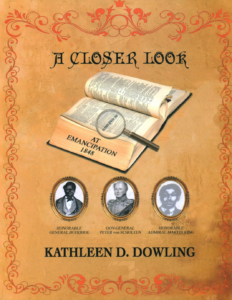
It is a book that sheds new light on the 1848 emancipation in the Danish West Indies, particularly on the island of St. Croix. In fact, the information in the book came right out of the Danish National Archives, translated by Dr. Niklas Thode Jensen, Dr. Birgit Christensen, and Dr. Karen V. Sivertsen, a native Jamaican who I met and know personally.
In other words, “A Closer Look” by Dowling has the original written words of eyewitnesses and testifiers in the form of depositions, court trials, census records and historical documents, etc., from the enslaved population of the Danish West Indies.
The translation from Danish to English also includes content from Danish officials like Gov. General Peter von Scholten, Maj. Carl L Gjellerup, Capt. Carl L.C. Irgminge, and letters and testimonies from such historic figures as General Buddhoe, Admiral Martin King, Anna Elizabeth Ulricka Heegaard, planters, church officials, doctors and other individuals who participated directly or indirectly in the1848 insurrection in the Danish West Indies.
I can write several articles about this new light shed on our emancipation history. When you read the book, you become part of it because you are living the events mentally, emotionally and physically of what took place 176 years ago through the letters and testimonies of individuals who made the ultimate sacrifices for our freedom. It will make you think. It gives you goosebumps.
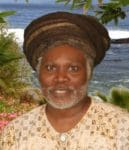
Since General Buddhoe is such a popular figure in our emancipation history, there are sections in the book that I will mention briefly about his family history, his activities on Emancipation Day, his imprisonment in Christiansted, his 1840 and 1841 arrests, and his assassin (Carl Ludving Christian Irminger).
General Buddhoe was born on St. Croix on the 19th of March, 1820, on La Grange Plantation. His faith was Lutheran, and he was 28 years old at the time of the emancipation.
His mother was Maria Rosina, and two sisters were Leah ”Sanchy” Petrus and Mathilda. According to historical record, Leah named one of her sons John Gottlieb after her brother Buddhoe. Her son also participated in the 1878 Fireburn 30 years after emancipation. In the Danish police report, it mentioned Leah attempted to visit her brother Buddhoe when he was arrested in 1848 in Frederiks Fort jail. According to historic records, she was “rudely talking back to” Danish officials. At that time, she was only 15 years old.
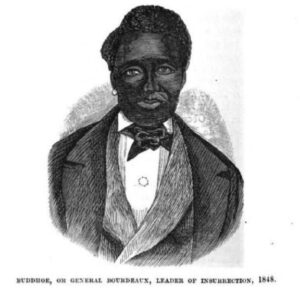
The Danish records stated, “John Gottlieb” of La Grange Plantation, who was born in 1799, could possibly be Buddhoe’s father. The census records mentioned when his mother was born, who she was married to, what church she married in, how many children she had, their ages, where she lived, and when she died. The census also mentioned Maryan Gottlieb, who was born in 1794. She was Buddhoe’s aunt, his father’s sister.
The activities of Buddhoe in the 1848 emancipation are enlightened, interesting and humbling. In 1852, von Scholten wrote a personal letter to his childhood friend, Maria Eide, noting “He and General Buddhoe worked collaboratively on the Emancipation and even had ‘a pact’ in which they had made each other a promise.” You must read the full account of the letter and other testimonies to understand the impact Buddhoe and others had in freeing themselves from slavery — they were not freed by the Danish Government.
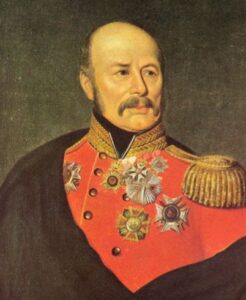
In fact, von Scholten remarks to W.R.J. Grant in a memorandum dated August 1848, noting, “he said he had not emancipated the negroes, that they had taken it themselves and that therefore it was his opinion the King was absolved from any responsibility as regards compensation.” Nevertheless, we were always told that Buddhoe was shipped to Trinidad. However, Buddhoe’s request to the Supreme Court when he was on trial was that he wanted to leave St. Croix and “relocate to one of the English Colonies.”
The Supreme court granted Buddhoe his wish, and he also expressed to the court that he felt it “would be dangerous for him to return to the Danish West Indies.” These statements are in Buddhoe’s testimonies to the Supreme Court documented in the 1848 trials. On July 24, 1848, he was transferred from Frederiks Fort to Christiansvaern Fort. He was there 139 days, held by the Danish government while being questioned about the emancipation activities.
From reading the historical documents, you have a sense that Buddhoe was popular among the enslaved population, planters, government officials, and other individuals in the slave plantation system of the Danish West Indies. Nevertheless, he received his passport to Tortola, along with other items such as money, letters of recommendation from planters, friends and Danish authorities to enter the British colony. Buddhoe was a tall, strong-built, handsome Black man with black eyes and black, curly hair who dressed like a gentleman when he boarded the ship to Tortola.
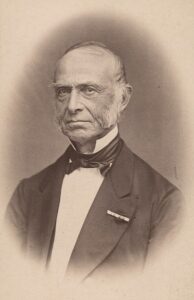
Carl L.C. Irminger, who was the captain of the ship Ornen, took all of Buddhoe’s belongings once they left the harbor of Christiansted that cool December morning of 1848. Irminger had no intention to sail to Tortola with Buddhoe. He interrogated Buddhoe from time to time on the ship to make him confess his role regarding the insurrection of 1848. Buddhoe asked several times where the captain was taking him.
The captain replied that it was all dependent on him giving information about the riots of July 3, 1848. Buddhoe kept silent and went to his grave with the information of what took place when our ancestors were physically emancipated. On Jan. 8, 1849, Buddhoe landed in Port of Spain, Trinidad. He was told by the captain that if he ever came back to St. Croix, he would have his life destroyed.
The translation also mentioned that when Buddhoe was about 20 years old, he got arrested. In 1840, he was charged with “theft” and received 30 lashes. Then in 1841, he was arrested again for “theft and maronloben,” which means to become a maroon. Buddhoe stole food from his master’s kitchen to help an elderly man who was unable to get food for himself. With this act of kindness, it is clear what kind of a man Buddhoe was: A natural leader who cared for his people and who was incredibly brave to emancipate his people 176 years ago.
For a copy of “A Closer Look,” contact Kathleen Dowling at dowlingkathleen@hotmail.com or 340-332-1601. The book is also available online at Amazon or Barnes and Noble, Author House Publishing, and as an E-Book.
— Olasee Davis is a bush professor who lectures and writes about the culture, history, ecology and environment of the Virgin Islands when he is not leading hiking tours of the wild places and spaces of St. Croix and beyond.














